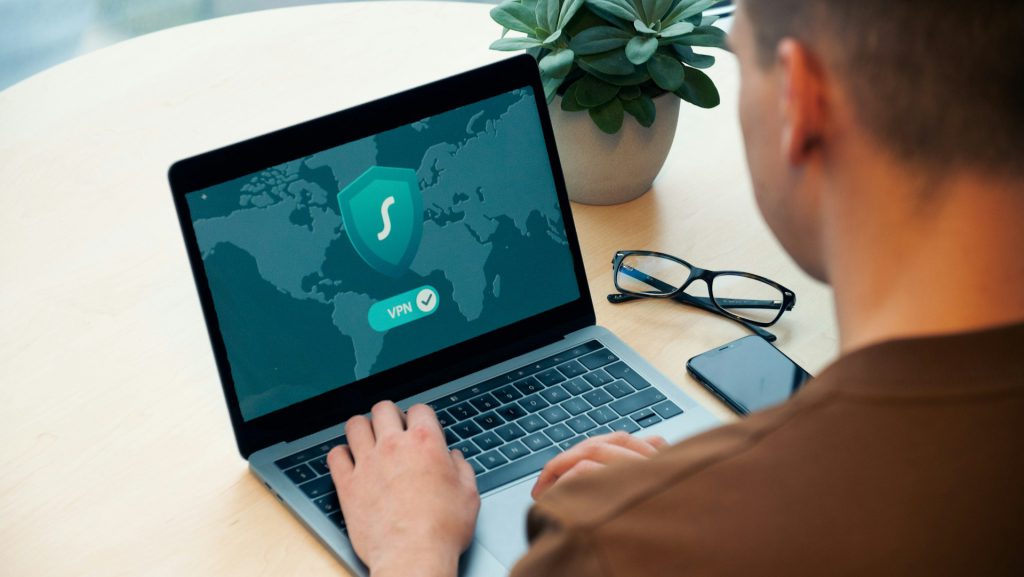Table of Contents
Internet in Iran
When visiting Iran, there are some important things to know about using the internet and your mobile phone. For example, you will need to get familiar with Virtual Private Networks (VPNs) to access certain websites while using Iran internet today. VPNs help you go around Iran internet restrictions.
Internet censorship is common in Iran, with many popular websites and social media platforms being blocked or limited by the government. Using a VPN is highly recommended. A VPN encrypts your internet traffic and sends it through a server in another country, allowing you to bypass censorship and access blocked content.
It’s also worth noting that while the speed of the internet in Iran may not be as fast as in some other countries, the infrastructure is constantly improving. Having a reliable VPN can help make your internet connection better and ensure a smoother browsing experience.
Overall, with the right tools and apps, you can navigate Iran internet and stay connected during your travels, while also being mindful of the local rules and restrictions.

Phone Registration
For tourists visiting Iran, registering their mobile phones is generally not required if their stay is less than 30 days. The key points regarding mobile phone registration in Iran for tourists are:
- Tourists can use their non-registered phones with a local Iranian SIM card for up to 30 days without any issues.
- After 30 days, the phone will be disconnected from the Iranian mobile network if not registered, but can still use WiFi.
- Registration involves paying a fee based on the phone’s price, which can be expensive for high-end smartphones.
- Most tourists do not stay in Iran for more than a month, so they do not need to register their phones.
Options for Longer Stays
If planning to stay in Iran for more than 30 days, tourists have a few options:
- Register the phone by paying the required fee, which can be costly for expensive phones.
- Purchase a cheap local phone or a mobile internet router to use during the extended stay, avoiding registration fees.
- Use the phone only on WiFi networks after the initial 30-day period without registration.
It’s important to note that not registering the phone does not have any consequences once the tourist leaves Iran, as registration is only required for using Iranian mobile networks beyond 30 days.
Local Sim Card

The fastest way to have internet access is by buying a local SIM card. You can find the two best mobile network operators in Iran, Irancell and Hamrah-e Aval, at Imam Khomeini Airport the moment you arrive in Iran. By showing your passport, you can buy a SIM card and ask the person working there to activate your data plan.
You should keep in mind that there are some blocked websites in Iran, such as Facebook, YouTube, Telegram, and Twitter but you can use one of the many free VPNs for Iran to reach these blocked sites and apps.
Free WiFi
When you are traveling, the hotel you are staying at often provides free WiFi access for guests, which is helpful for staying connected. Many cafes and restaurants also offer free WiFi that you can use, allowing you to browse the internet while enjoying food or drinks. However, public WiFi networks can be risky for security, so it’s a good idea to use VPN for Iran to keep your data safe when connecting.
While you are out in the city, you’ll likely need to use your mobile data plan to access the internet, as free public WiFi hotspots may not be available in some areas. Using mobile data when traveling to other countries can be expensive, so it’s wise to check the details of your plan and consider buying a local SIM card if you expect to use a lot of data.
Here are some tips for using free WiFi safely while traveling:
- Enable two-factor authentication on important accounts to add an extra layer of security.
- Avoid accessing sensitive information like banking details over public WiFi.
- Use a VPN to encrypt your internet traffic and protect your privacy.
- Be careful of unsecured WiFi networks, as they could be fake hotspots set up by hackers.
- Consider buying a portable WiFi hotspot or international data plan for reliable internet access.
By taking advantage of hotel and cafe WiFi when available, and using mobile data carefully when out exploring, you can stay connected during your travels while minimizing security risks and data costs.
Censorship: VPN for Iran

In Iran, the government blocks many websites and online services. This is called internet censorship. It means you cannot visit certain websites or use some apps and platforms like Facebook. Sometimes, even random websites hosted on banned servers are blocked. If a website takes too long to load or you get an error message saying “This site can’t be reached,” it might be because the website is blocked, and you need to use a VPN.
A VPN stands for Virtual Private Network. It allows you to change your IP address and connect to the internet as if you were in a different country. This way, you can bypass the restrictions and access blocked websites and services in Iran.
Using a VPN can also be helpful when accessing banking or merchant websites from Iran due to US sanctions. If your bank detects that you are connecting from Iran, they may block or suspend your account access. With a VPN, you can appear to be connecting from another country, allowing you to use these services without interruption.
How to Use VPN
Using a VPN for Iran is very important for getting around internet limits and getting to blocked stuff while keeping your online privacy and safety.
To use a free VPN for Iran, just download and install the VPN app on your device, make an account (if needed), and connect to a server location outside of Iran. This will encrypt your internet traffic and hide your Iranian IP address, letting you bypass censorship and access restricted content safely.
Important Things to Consider
It’s very important to choose a VPN with strong security features like powerful encryption, a strict no-logs policy, and a kill switch to protect your online activities from government watching and monitoring in Iran.
Be aware that using a free VPN for Iran may have legal limits or restrictions, so it’s essential to stay up-to-date on the latest laws and rules about using a VPN in the country.
Also, remember to disconnect from the VPN when getting to local Iranian services or websites, as some may be blocked or not accessible while connected to a foreign VPN server.
FAQs about Iran Internet
Q1: Is the internet available in Iran?
A1: In Iran, the Telecommunication Company of Iran (TCI) controls all internet traffic, and they have extra surveillance in place. Many different internet service providers (ISPs) are also active in Iran.
Q2: How fast is the internet in Iran?
A2: Iran is the ninth country out of thirteen neighboring countries when it comes to mobile internet speed, with an average of 32 Mbps. Only Iraq, Armenia, Pakistan, and Afghanistan have slower mobile internet speeds than Iran. Compared to its neighbors, the Gulf region countries have faster mobile internet speeds, not just in the region but also globally.
Q3: When did the internet come to Iran?
A3: In 1993, Iran became the second country in the Middle East to connect to the Internet. Since then, the government has worked hard to upgrade the country’s information and communication technology (ICT) infrastructure.
Q4: Which social media works in Iran?
A4: In Iran, people commonly use social media platforms like Instagram, Telegram, WhatsApp, and Twitter.
Q5: How does the internet work in Iran?
A5: Iran’s internet has a key feature: it’s filtered, which means you might not be able to access certain websites you usually can. This includes popular sites like Facebook. Additionally, even random websites hosted on restricted servers might be inaccessible.
Last Words: Discover the Best of Iran Internet with a Customized Tour
When you go to Iran, it’s important to understand how to use the internet and your phone. One thing to know is about Virtual Private Networks (VPNs). These help you access certain websites that might be blocked on Iran internet today. VPNs help you get around these restrictions. Iran often blocks or limits popular websites and social media. That’s why it’s a good idea to use a VPN. This lets you get past the blocks and view the content you want.
Iran’s Internet access can vary depending on where you are, so it’s essential to have a plan that keeps you connected throughout your journey. With To Iran Tour, you can explore Iran’s historical sites, bustling cities, and natural wonders while staying connected to the digital world. Our team at To Iran Tour takes care of everything, from arranging high-speed Wi-Fi in your accommodations and transportation to recommending the best local SIM cards for easy Internet access.
We’ll help you discover the best of Iran while staying connected every step of the way.

